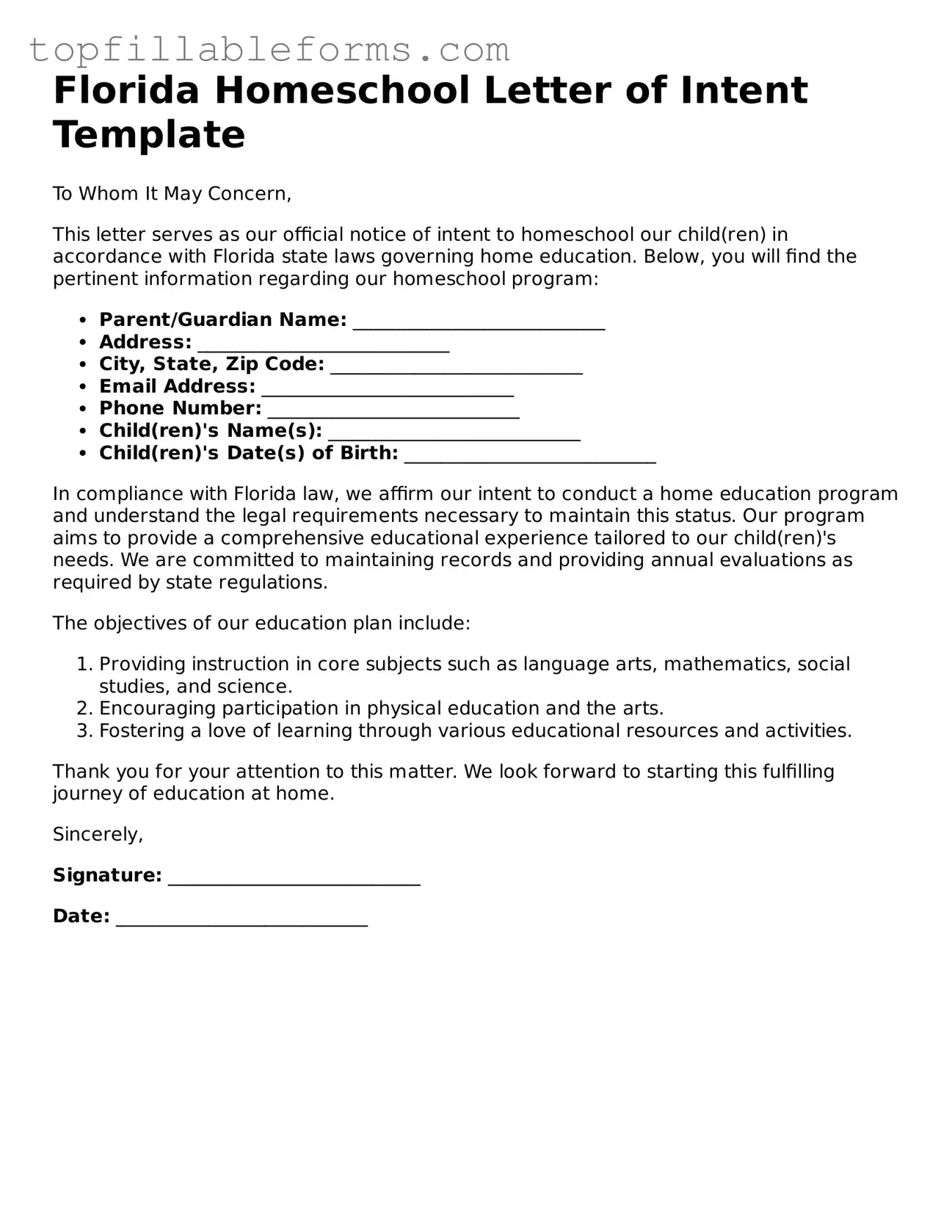Attorney-Verified Homeschool Letter of Intent Template for Florida
The Florida Homeschool Letter of Intent is a document that parents must submit to officially notify the local school district of their decision to homeschool their children. This form outlines the family's intent to provide an educational experience outside the traditional school system. Completing this form is an essential first step in the homeschooling process in Florida.
Open Homeschool Letter of Intent Editor Here

Attorney-Verified Homeschool Letter of Intent Template for Florida
Open Homeschool Letter of Intent Editor Here
Finish the form now and be done
Finish your Homeschool Letter of Intent online by editing, saving, and downloading fast.
Open Homeschool Letter of Intent Editor Here
or
▼ PDF File
